Last month India hosted the ICOMOS’s 19th triennial General Assembly at New Delhi. The Triennial General Assembly is held every three years. Till date, ICOMOS has held 18 sessions of its Triennial General Assembly. This is the first meeting in India. Earlier ones were held in Europe, Asia, North America and Africa. Geetanjali Joshi from ReReeti in conversation with ICOMOS India South Zone representative Pankaj Modi on ICOMOS Symposium and General Assembly 2017.
GJ: This was an event of huge magnitude. Could you tell us the aim of this conference? Who all participated and what was the common end that we are looking at?
PM: ICOMOS, International Council on Monuments and Sites, is the largest International Organisation on Cultural Heritage with more than 10,000 members from more than 120 countries. It is also the advisory body to the UNESCO World Heritage Centre responsible for evaluating the nomination dossiers for World Heritage Properties submitted by the States Parties.
The Triennial General Assembly, held from Dec 11 to Dec 15, 2017, was attended by more than 1000 members representing 102 countries, making it the largest event on heritage ever held in South Asia. The theme of the Assembly was ‘Heritage and Democracy’, inspired by a recent, marked shift in heritage discourse globally towards a genuine people-centric engagement.The Symposium explored the possibilities for cultural heritage in a world of multiple stakeholders, recognizing the challenges of cultural diversity, and resulting constellations amidst local and/or global communities. It provided great opportunity to promote international co-operation and strengthen understanding and communication in the field of heritage.
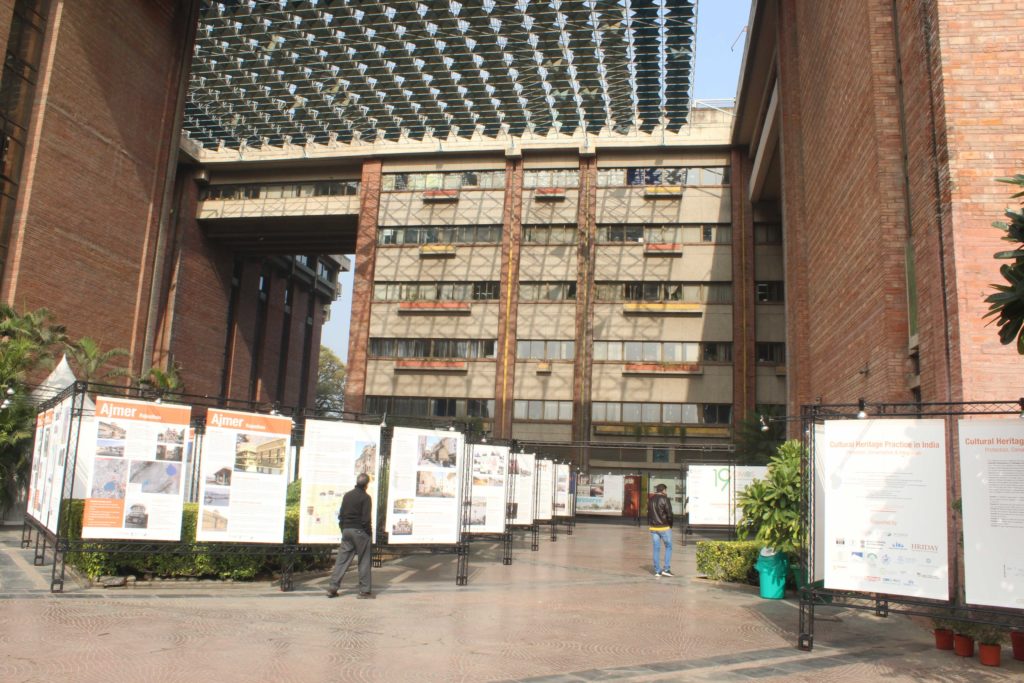
Exhibition of Conservation works in India in the courtyards of India Habitat Centre. Picture Credit: Madhusudhan
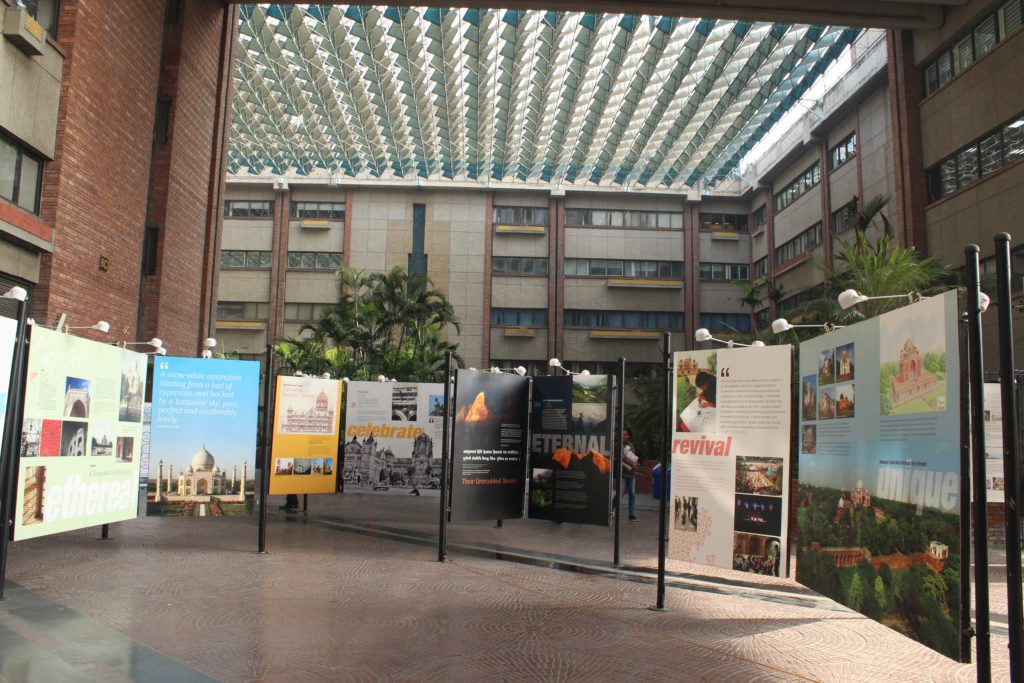
Picture Credit: Madhusudhan
GJ: What kind of response did you see from the participants?
PM: A wide range of presentations across the four themes of the General Assembly were made and discussed. Presentations were made on four major themes.
- Role of Heritage in Peace and Reconciliation,
- Integrating Heritage and Sustainable Urban Development by engaging diverse Communities for Heritage Management,
- Protecting and Interpreting Cultural Heritage in the Age of Digital Empowerment,
- Culture-Nature journey – exploring the complexities of Human Relationships with Natural and Cultural Places.
Heritage professionals like archaeologists, architects, urban planners, engineers, curators, building conservation professionals and art historians participated in the various presentations, debates and discussions. They represented government and not for profit organizations.
The key takeaway was on innovative ways of involving people and community in conservation projects. To involve people, not as a one-time consultation but to be part of the process and engage them. An engagement that goes beyond economic benefits. The case study of the Humayun’s tomb by the Aga Khan Foundation inspired many.
GJ: What were some of the most memorable activities/ talks/ seminars?
PM: During the general assembly, the Piero Gazzola prize is awarded. This award was established in 1979 and is the highest award in Conservation, given to an individual or a group of people who have worked together and contributed with distinction to the aims and objectives of ICOMOS. This year the award was given toProfessor Saleh Lamei Mostafa (Egypt), of Center for Conservation and Preservation of Islamic Architectural Heritage(CIAH), for his contribution in the fields of engineering, architecture and archaeology.
Sessions such as ‘Manthan’ highlighted current issues and developments in the field. Challenges faced by heritage sites in the Asia Pacific and new technologies on documentation and interpreting heritage were the two main topics of discussion during the session. Presentations by Google Art and Getty Foundation helped think and reflect on innovative ways of interpreting heritage.
GJ: What or how do you see the impact of such events on our country and across the world, especially in the context of raising awareness within the citizens?
PM: One of the main highlights of the General Assembly was the adoption of Delhi Declaration on Heritage and Democracy. This Declaration reflects a commitment by ICOMOS to Heritage and Democracy as key ingredients in a people-based approach to sustainable development. Heritage is a fundamental right and responsibility of all. It is a starting point for a meaningful and equitable future that secures and celebrates diversity, social engagement, equality and justice for all cultures.
The Delhi Declaration on Heritage and Democracy has been a collaborative effort of ICOMOS India with the international experts of ICOMOS. Amongst some of the points that the declaration covers, it emphasized ensuring continuity of living heritage. Also, ethical principles and practices have to be developed for heritage and collection and dissemination of information regarding a resource should be carried out in a transparent manner. The declaration emphasised that heritage is everybody’s right as well as everybody’s responsibility.
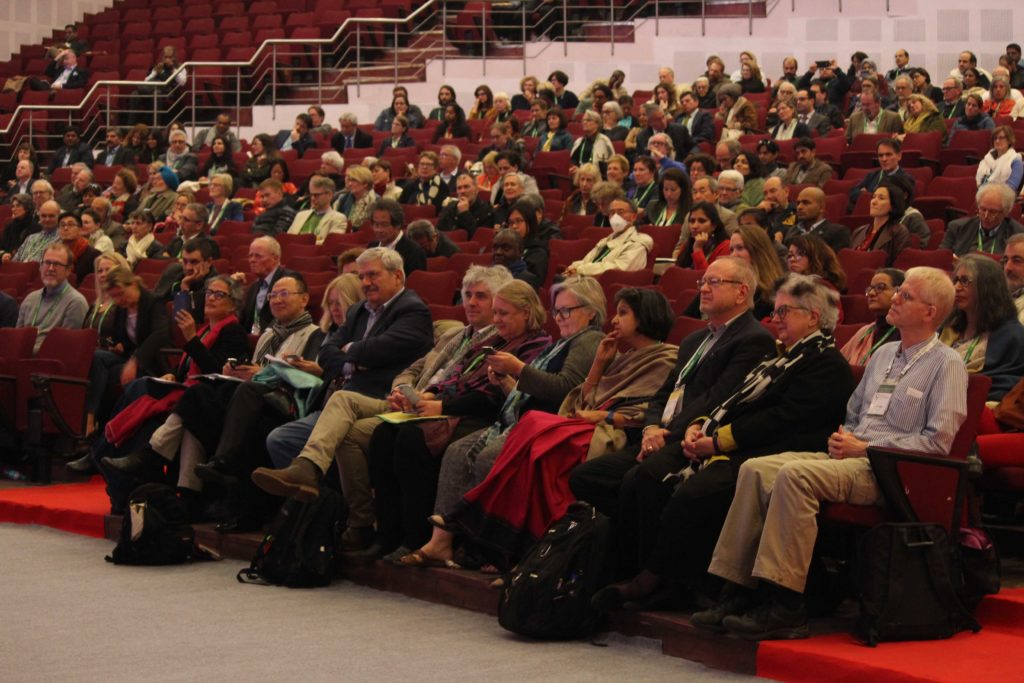
Picture Credit: Madhusudhan
GJ: Can we hope for more of such events in the future.
PM: Yes, we see more involvement of ICOMOS from South Asian countries coming together and looking at the shared heritage. The next General Assembly in 2020 will be held in Sydney, Australia. Many of the National Scientific Committees would be taking up a number of tasks and the zones will be coming up with their own meetings.
Talking about work closer to home, the south zone has a few projects in the pipeline. These are mainly exchanged initiatives of the leanings from various projects the members are involved in. You can look out for talks and small events from our side in this year.
GJ: Are we looking at an increased awareness and involvement of government bodies as well as local citizens towards the cultural and scientific causes.
PM: I would like to think yes but we will have to watch. There has been some support. The event was partnered by various organisations and Departments of Government, Institutions and Trusts. – Ministry of Culture, Government of India Ministry of Urban Development, Department of Tourism, Government of Jammu and Kashmir, Government of Odisha, Government of Bihar, Aga Khan Trust for Culture and others. We see a larger collaboration of ICOMOS India with various organisations in India on conserving our heritage from here.
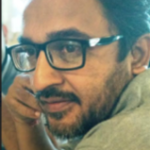
Pankaj Modi
Pankaj Modi, has done his Masters in Architectural Conservation from the prestigious School of Planning and Architecture, New Delhi. He is South Zone representative of ICOMOS India. He is an active member of INTACH, Bengaluru Chapter and partner at Saythu, a conservation practice. He has also worked extensively with the Archaeological Survey of India, the premier government agency and other organisations in the conservation sector in India for over a decade. Pankaj is also active in academics being visiting faculty to many Schools of Architecture.








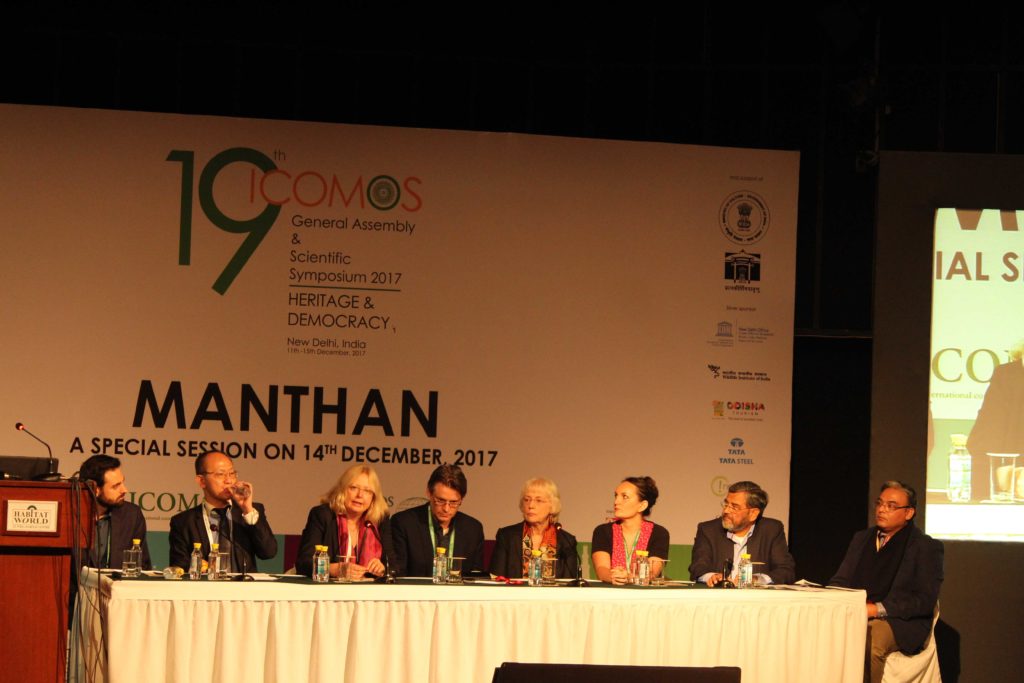
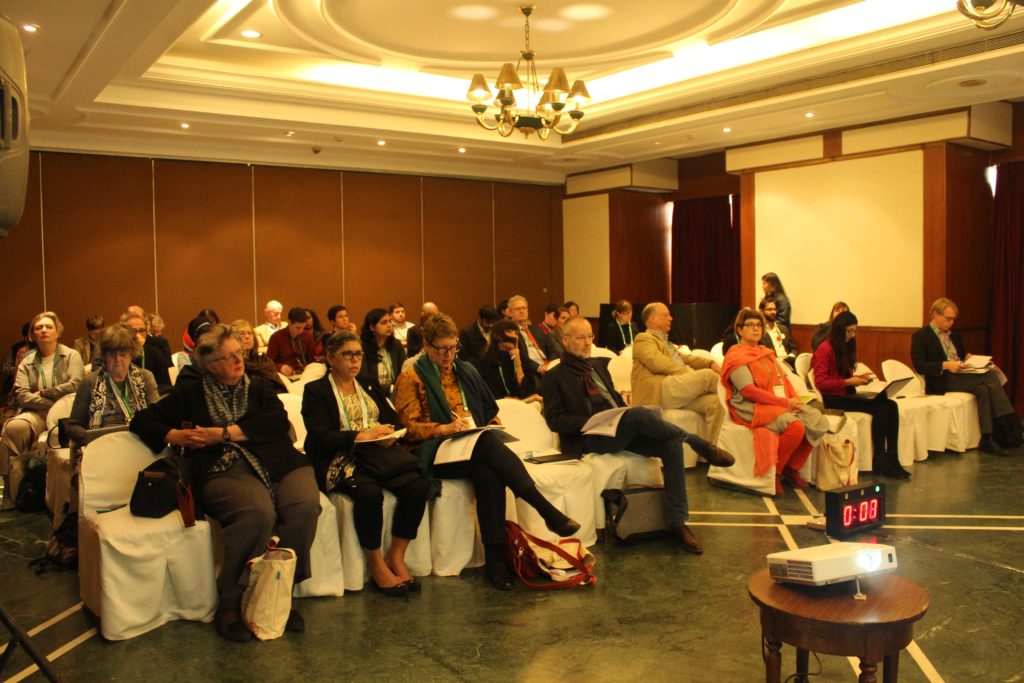
Recent Comments